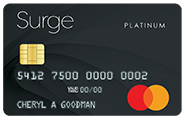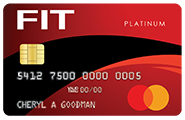Sams Club® Mastercard®

Intro Purchase APR: 0% - 7.99%
Regular Purchase APR: 15.65% or 23.65%
Annual Fee: $0
Credit Recommended: Good
Card Issuer: Sam
Rewards Rate: 1%-5%
- 5% cash back on gas
- 3% cash back on dining
- Earn 5% cash back Sam’s Club purchases for Plus members
- 1% cash back on other purchases
- No annual fee
- Get $30 as a statement credit when you open a new account and make $30 in Sam's Club purchases within 30 days.
You may also like
Transaction Fees
Annual Fee: You may find some credit card options which charge yearly fees, but not all of them do. The types of credit cards which typically have yearly fees include premium credit cards, subprime credit cards, and secured credit cards. The fee amount charged per year will vary. Some fees start at $0 and go up to $500. It all depends on which type of credit card you apply for.
Regular Purchase APR: When you make a standard purchase with your credit card, the amount charged gets added to your revolving debt balance. On top of that, there is a certain amount of interest which gets added to this balance too. This interest is called the annual percentage rate, or APR. Your credit rating greatly influences your APR, which is why the percentage fluctuates regularly. People with perfect credit may only have to pay 10% APR while people with terrible credit pay up to 35% APR. For this reason, it is important to review all the terms and conditions on your credit card application prior to signing it. Make sure you know the true APR after the initial trial period expires. Sometimes these credit card companies will try to lure you in with 0% APR for 12 months, but they won’t tell you what the APR is after those 12 months. You must look for it in the fine print.
Intro Purchase APR: When you see a credit card plan which offers an introductory purchase APR of 0%, this doesn’t necessarily mean it’s a trick. Sometimes you’ll find some good low-interest credit card plans which charge 0% APR for the first 6 months, 12 months, or sometimes even longer. This means that all your credit card purchases within this time period won’t have interest charges added onto the debt balance. However, once the introductory period expires, the standard purchase APR will then apply. Again, check the terms and conditions to see what this APR is.
Balance Transfer Fee: If you owe money on multiple loans or credit cards, you can clear this debt by moving it to another credit card which has more available credit. This is basically a way to consolidate your debt so that you only owe money on one account instead of several accounts. However, whenever you transfer your debt balances to another account, you must pay a balance transfer fee of anywhere between 3% and 5% of the total transferred debt amount. For instance, if you owe a total of $10,000 on all your loan and credit card accounts, a 5% balance transfer fee on this amount would cost you $500.
Regular Balance Transfer APR: Sometimes a credit card company will offer a regular balance transfer APR to new credit card account holders instead of a balance transfer fee. This balance transfer APR is usually a generous deal which ranges from 0% to a very low APR. However, this low balance transfer APR is only available for a limited introductory time period. This could last for 6 months, 12 months, or longer. Once the introductory period is over, the normal rates apply.
Cash Advance Fee: If you want to take out a cash advance on your credit card, you will either be charged 3% to 5% on the transaction amount or a fixed fee of between $5 and $15 per transaction. The greater amount of the two is the one you will pay. For instance, if you take a $200 cash advance on a credit card which charges a cash advance fee of 10% or $5, you will end up paying 10% because that is the greater amount. In this case, the cash advance fee is $40.
Credit Terms
TheCreditWiki, can make searching for the best card far easier, especially when you need to consider several factors. You may not be aware, but there are a few cards that have APR rates that you will need to review before signing the contract with the bank or lender. You will also need to consider financing costs, and anticipate what you are going to need the card for, is it going to be a single one-off purchase, or do you want to carry a monthly balance? Understanding the potential financial implications is crucial, for example, if you don't make your required monthly or bulk payment by the agreed date, then your financing costs will increase. If this happens, you will incur several costs – such as paying the full current balance, and fees to the credit card issuer/bank. Another important factor is interest fees. Please be aware that they can fluctuate; they can shift from as low as 0% to as high as 35%. So, before signing the contract, review the credit card applications for any specifics regarding the interest rates, as they will be stated in the terms and conditions. TheCreditWiki strive to provide our customers with the most current, and up-to-date information, regarding rates, benefits and many more. Please do remember that the credit card offers that we have listed, are displayed without guarantee. If you want to affirm the terms and conditions, click on "Apply Now." You will be able to learn more about the full credit card offer, on a secured page that will be supplied by the card issuer(s). You will see the list of the best credit cards options currently available on the market listed below. We have provided you with all the relevant information about each provider to ensure that you will make an informed and confident decision.
Advertiser Disclosure
When searching for the best credit card TheCreditWiki can help you to make the best decision based on your lifestyle and financial history. TheCreditWiki is a free service and promotes bolstered credit examination, through a comparison entity. The offers that you will see on thecreditwiki.net are from organizations, which thecreditwiki.net will receive remuneration.
The Age Requirement
Every credit card applicant should be over 18 years old.
General Disclaimer
We advise you to review your credit card application for specific references of the terms and conditions. We will always endeavor to provide the most relevant and up-to-date information. However, please be aware that all credit card offered displayed are not guaranteed. If you wish to confirm the full terms & conditions, please click on the "Apply Now" link. If you select the link, it will open a secure page provided by the card issuer(s) which will explain your credit card offer in more detail.
Our Editors
Here at TheCreditWiki, we have a team of editors who supply unbiased ratings of various credit card offers. The components used to rate the offers accordingly are; offer purchasers, expenses, financing costs & which credit card the application is related too. Please be aware that all of the evaluations are completed using a master supposition from our editors. Our editors are not affected by any compensation that our receives from the credit card issuer.



